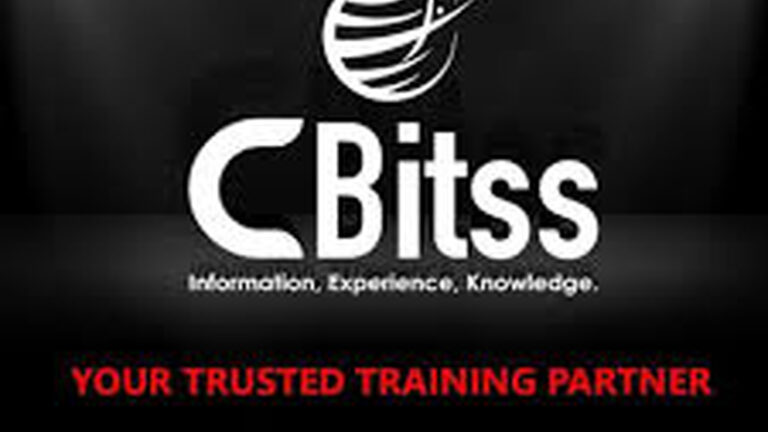Accounting Courses for Non-Accountants
Table of Contents
- Introduction
- Why Non-Accountants Should Learn Accounting
- Types of Accounting Courses Available
- Basic Accounting Principles
- Financial Accounting
- Managerial Accounting
- Tax Accounting
- Auditing
- Key Benefits of Accounting Knowledge for Non-Accountants
- Improved Financial Decision-Making
- Enhanced Career Opportunities
- Better Budget Management
- Entrepreneurial Success
- Online vs. Offline Accounting Courses
- Advantages of Online Courses
- Benefits of Offline Classes
- Top Accounting Courses for Non-Accountants
- Coursera: Introduction to Financial Accounting
- edX: Fundamentals of Accounting
- LinkedIn Learning: Accounting Foundations
- Udemy: Accounting for Non-Accountants
- Community College Programs
- Tips for Succeeding in an Accounting Course
- Set Clear Goals
- Practice Regularly
- Utilize Available Resources
- Join Study Groups
- Conclusion
Introduction
Accounting is often perceived as a complex and specialized field reserved for professionals. However, understanding the basics of accounting is essential for non-accountants as well, whether you are a business owner, manager, or individual looking to improve personal financial management. This article explores the importance of accounting courses for non-accountants, the types of courses available, and how acquiring accounting skills can benefit various aspects of personal and professional life.
Why Non-Accountants Should Learn Accounting
Learning accounting can seem daunting for those without a background in finance, but it is crucial for several reasons:
- Financial Literacy: Understanding accounting helps individuals manage their finances better and make informed decisions.
- Business Management: For entrepreneurs and managers, accounting knowledge is essential for overseeing business operations and ensuring financial health.
- Career Advancement: Many jobs require basic accounting skills, and having this knowledge can enhance career opportunities.
- Personal Finance: Individuals can manage their budgets, investments, and savings more effectively with a grasp of accounting principles.
Types of Accounting Courses Available
Basic Accounting Principles
This course covers the foundational concepts of accounting, including the accounting equation, double-entry bookkeeping, and the preparation of financial statements. It is ideal for beginners who need a broad overview of accounting practices.
Financial Accounting
Financial accounting focuses on the preparation and interpretation of financial statements, such as balance sheets, income statements, and cash flow statements. This course is crucial for understanding how businesses track and report their financial performance.
Managerial Accounting
Managerial accounting is geared towards internal business decision-making. It includes budgeting, cost analysis, and performance evaluation. This course is beneficial for managers who need to make informed strategic decisions.
Tax Accounting
Tax accounting involves understanding tax laws and regulations, preparing tax returns, and planning for tax obligations. This course is essential for anyone involved in financial planning or managing a business.
Auditing
Auditing involves examining financial records to ensure accuracy and compliance with regulations. This course is important for those who want to understand internal controls and risk management.
Key Benefits of Accounting Knowledge for Non-Accountants
Improved Financial Decision-Making
Accounting knowledge enables individuals and business owners to make informed financial decisions, such as investments, cost-cutting measures, and strategic planning.
Enhanced Career Opportunities
Many roles, including management, consulting, and finance, require basic accounting skills. Understanding accounting can make you a more competitive candidate in the job market.
Better Budget Management
Learning accounting helps in creating and managing budgets, ensuring that personal or business finances are under control.
Entrepreneurial Success
For entrepreneurs, accounting is crucial for tracking income and expenses, securing funding, and ensuring profitability. Understanding accounting principles can be the difference between success and failure in business.
Online vs. Offline Accounting Courses
Advantages of Online Courses
- Flexibility: Online courses allow you to learn at your own pace and schedule.
- Accessibility: Courses can be accessed from anywhere, making it easier for working professionals to study.
- Variety: There is a wide range of online courses available to suit different learning needs and levels.
Benefits of Offline Classes
- Structured Learning: Traditional classes offer a structured learning environment with regular schedules and deadlines.
- Personal Interaction: In-person classes provide opportunities for direct interaction with instructors and peers.
- Immediate Feedback: Students can receive immediate feedback on their progress and understanding.
Top Accounting Courses for Non-Accountants
Coursera: Introduction to Financial Accounting
Offered by the University of Pennsylvania, this course covers the fundamentals of financial accounting and is suitable for beginners.
edX: Fundamentals of Accounting
This course, provided by the University of Maryland, offers an in-depth introduction to accounting principles and practices.
LinkedIn Learning: Accounting Foundations
This series of courses covers basic to advanced accounting concepts and is ideal for those looking to build a solid foundation in accounting.
Udemy: Accounting for Non-Accountants
A popular choice, this course offers a comprehensive overview of accounting tailored for individuals without a financial background.
Community College Programs
Many community colleges offer accounting courses for non-accountants. These programs provide a blend of theoretical and practical knowledge, often at an affordable cost.
Tips for Succeeding in an Accounting Course
Set Clear Goals
Define what you want to achieve from the course. Whether it’s improving personal finance skills or advancing your career, having clear goals will keep you motivated.
Practice Regularly
Accounting involves a lot of practice. Regularly working through problems and case studies will reinforce your learning.
Utilize Available Resources
Make use of textbooks, online resources, and any supplementary materials provided by the course. These resources can enhance your understanding of complex concepts.
Join Study Groups
Collaborating with others can provide different perspectives and help clarify difficult topics. Study groups also offer support and motivation.
Conclusion
Accounting courses is a valuable asset for non-accountants, offering benefits that extend beyond the professional realm. With various courses available online and offline, acquiring these skills is more accessible than ever. By understanding accounting principles, individuals can improve financial decision-making, enhance career prospects, and achieve greater success in both personal and business endeavors.

